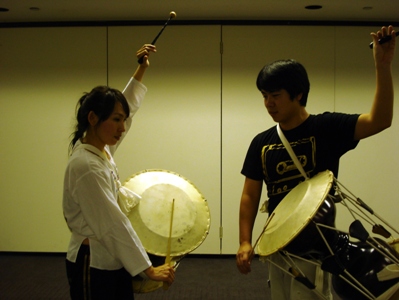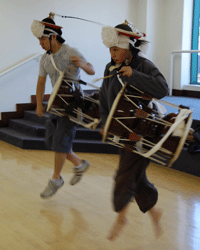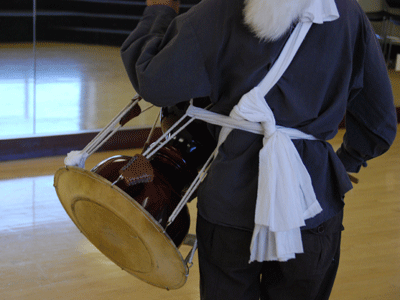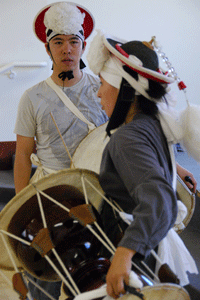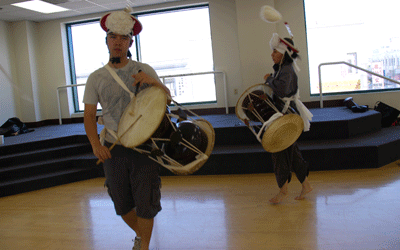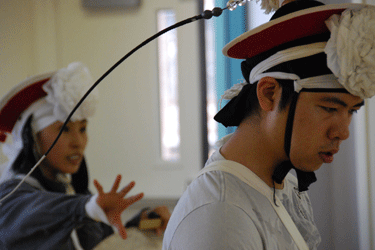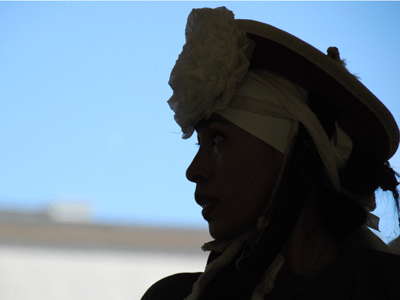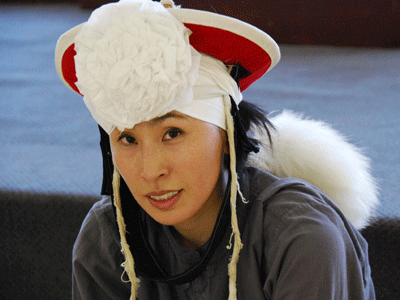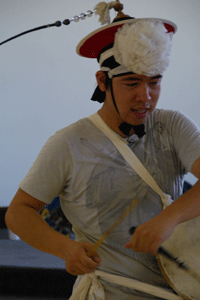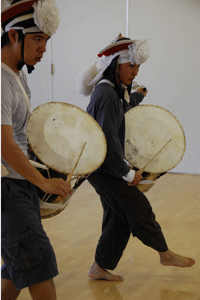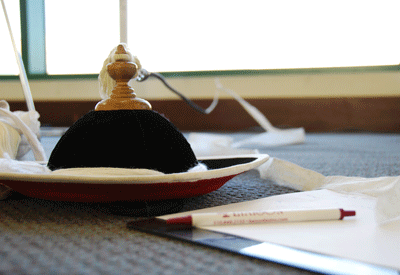Dohee Lee
Korean pungmul
Pungmul is a Korean folk music tradition that includes drumming, dancing, and singing. Most performances are outside, with dozens of players, all in constant motion. Pungmul is rooted in collective farming culture. It was originally played as part of farm work, on rural holidays, at other village community-building events, and in shamanistic rituals. Today it has expanded in meaning and is also used in political protest and as a performing art form. Drumming is the central element of pungmul. Each group is led by a kkwaenggwari (small handheld gong) player, and includes at least one person playing janggu (hourglass drum), buk (barrel drum), and jing (gong). Wind instruments (t’aepyongso, also known as hojeok, senap, or nalari, and nabal) sometimes play along with the drummers. Following the drummers are dancers, who often play the sogo (a tiny drum that makes almost no sound) and tend to have more elaborate—even acrobatic—choreography. Finally, japsaek (actors) dressed as caricatures of traditional village roles wander around to engage spectators, blurring the boundary between performers and audience. Minyo (folksongs) and chants are sometimes included in pungmul, and audience members enthusiastically sing and dance along.
Dohee Lee has studied and peformed traditional Korean music and dance since the age of 15. She studied traditional Korean dance at the Suwon Women’s College and folk and court music at the Yongin University under the instruction of numerous masters including Maebang Lee, Sooyoung Lee, Jinsung Yang, Jiwha Ryu, Jungoo Kim, Sukgun Kil, Kwangja Kim, and Kyungwoo Baek. She is currently the Artistic Director of Oakland’s Korean Youth Cultural Center.
In 2009, Dohee participated in ACTA’s Apprenticeship Program with apprentice Kyungseok Kent Hong. The apprenticeship focused on techniques and various textures of several pungmul instruments, including the janggu and the kkwaenggwari, and Kent was trained to adapt to various situations and roles within a pungmul ensemble.

